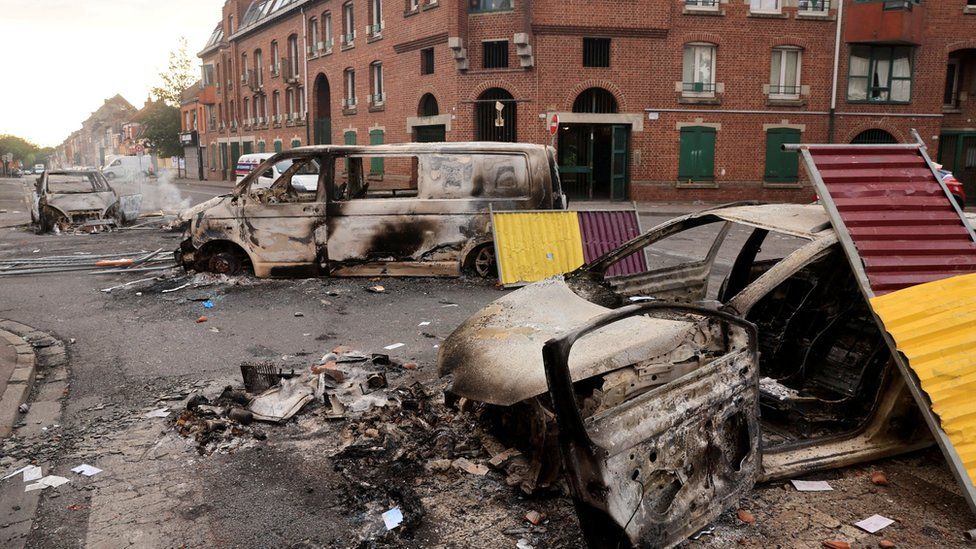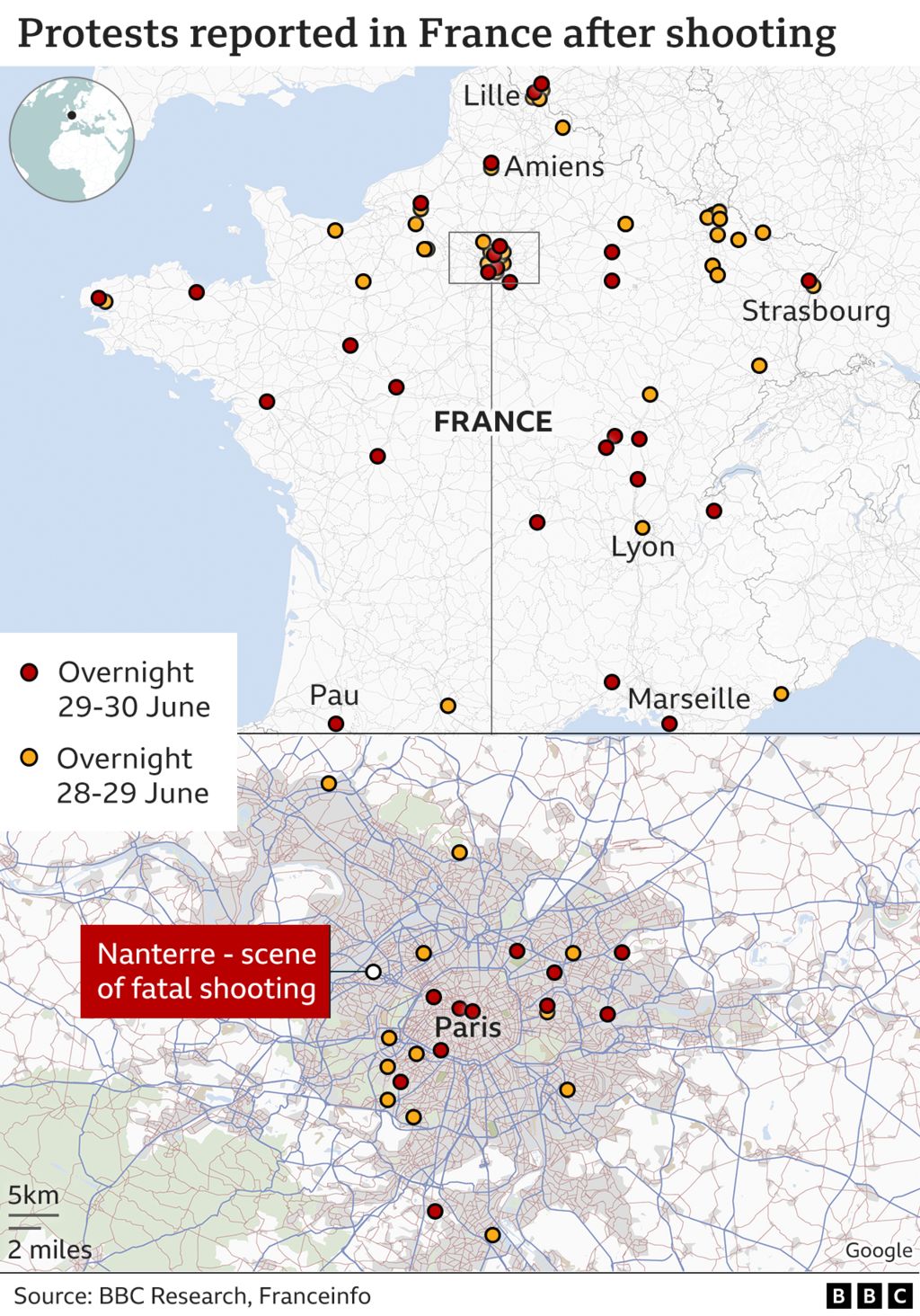
This article is more than
2 year old
At a crisis meeting, France's president said more officers would be deployed to contain the violence, but stopped short of declaring a state of emergency.
He urged parents to keep rioting children at home and social media platforms to remove certain content.
France has been rocked by three nights of unrest after Nahel M, 17, was killed as he drove away from a traffic stop.
More than 915 arrests were made on Thursday night alone, officials said, and the government announced it would deploy 45,000 police officers in a bid to contain further violence.
Mr Macron said that about a third of those arrested for rioting were "young, or very young", with Interior Minister Gérald Darmanin later clarifying that some were as young as 13.
Imploring parents to take action, he said it was their "responsibility" to keep any child intending to protest "at home".
Mr Macron condemned the violence of the last three days "with the greatest firmness" and said Nahel's death had been used to justify acts of violence - calling it an "unacceptable exploitation of the adolescent's death".
He also urged social media companies such as TikTok and Snapchat to take down "the most sensitive types of content" that had been posted, and supply authorities with the names of people using their services to organise violence.
A spokesperson for Snapchat said it had a "zero tolerance" for content that promoted violence and hatred, and would continue to monitor the situation closely.
From Lille and Roubaix in the north to Marseille in the south, shops were ransacked across France on Thursday night, streets were badly damaged and cars set on fire. The interior ministry said there had been more than 3,880 fires on public roads, compared with 2,391 on Wednesday.
Police in Marseille, France's second-largest city, had already arrested 80 people by Friday evening. It followed more clashes between protesters and riot police.
Public transport halted early in some places and curfews were enforced, with a nationwide curb on buses and trams running from 21:00 local time (19:00 GMT).

Some public events have also been cancelled, including two concerts by French pop star Mylène Farmer, due to take place at the Stade de France just outside Paris on Friday and Saturday night.
France's capital has been at the heart of the unrest because Nahel lived in Nanterre, a north-west Parisian suburb, and was killed there just after 09:00 on Tuesday.
He was shot after refusing to stop for a traffic check and died after emergency services attended the scene. A video, shared online in the hours following Nahel's death, showed two police officers trying to stop the vehicle and one pointing his weapon at the driver.
The officer who fired the fatal shot has since been charged with voluntary homicide and apologised to the family. His lawyer said he is devastated.
Nahel's death has reignited debate around the state of French policing, including a controversial 2017 firearms law which allows officers to shoot when a driver ignores an order to stop.
More widely, it has led to questions of racism in the force. The UN's human rights office said the unrest was a chance for France "to address deep issues of racism in law enforcement".
A spokeswoman pointed to a recent report by the UN committee on the elimination of racial discrimination, which last December expressed concern at aspects of French policing, including what the report suggested was the disproportionate use of identity checks and imposition of fines on specific ethnic groups.
Nahel's mother, Mounia, made her own accusations, saying the officer who shot her son "didn't have to kill" him.
"He saw the face of an Arab, of a little kid, he wanted to take his life," she told broadcaster France 5. Nahel was of Algerian descent.
On Thursday, Mounia led a largely peaceful march of more than 6,000 people in Nanterre. Wearing a white T-shirt emblazoned with the slogan "Justice pour Nahel" ("Justice for Nahel"), she said she hoped the tribute would be an opportunity for the community in and around Paris to remember her only child.
By late afternoon, the march had descended into violence, sparking the third night of unrest. Police fired tear gas at masked protesters who set fire to various objects, with people thought to have been out on the streets until the early hours of Friday morning.
Nahel's funeral is due to be held in Nanterre on Saturday morning.
In the UK, travellers have been warned to expect disruptions when trying to reach France over the weekend. The Foreign Office told people to "monitor the media, avoid protests, check the latest advice with operators when travelling and follow the advice of the authorities".
